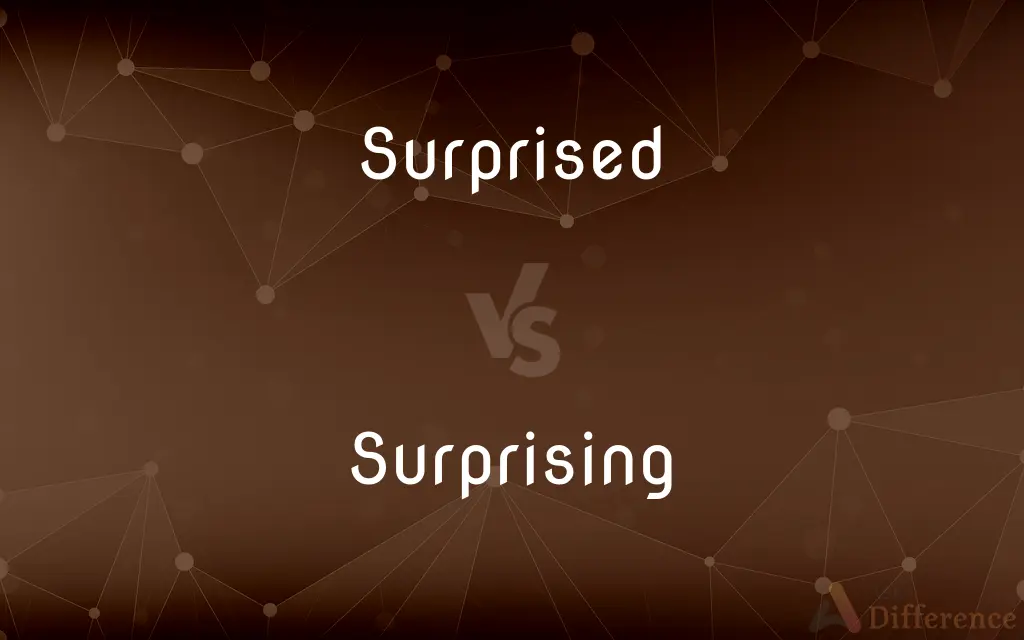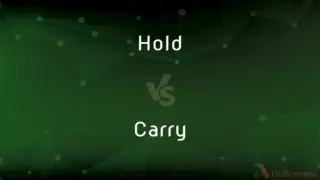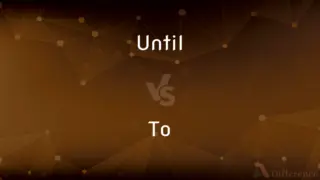Surprised vs. Surprising — What's the Difference?
By Fiza Rafique & Urooj Arif — Updated on April 18, 2024
Surprised denotes the state of being shocked or taken aback, while surprising describes something that causes this reaction.

Difference Between Surprised and Surprising
Table of Contents
ADVERTISEMENT
Key Differences
Surprised is used to express the emotion experienced when something unexpected happens. Whereas, surprising refers to the qualities or actions that evoke surprise.
Surprised often relates to the instantaneous reaction of an individual. On the other hand, surprising can describe events, facts, or behaviors that lead to such reactions.
Surprised is generally used as a past participle or an adjective describing a person’s state. While, surprising is commonly used as an adjective that qualifies scenarios or information.
Surprised focuses on the internal experience of a person encountering the unexpected. Whereas, surprising is more about the external qualities that disrupt normal expectations.
Surprised can be seen in expressions like "She looked surprised." On the other hand, surprising appears in contexts like "The news was surprising."
ADVERTISEMENT
Comparison Chart
Part of Speech
Adjective (often), Past Participle
Adjective
Focus
Reaction to stimuli
Nature of stimuli
Usage in Sentence
Describes a person’s state
Describes circumstances or facts
Emotional Context
Internal, personal reaction
External, causal factor
Example
"He was surprised by the loud noise."
"The loud noise was surprising."
Compare with Definitions
Surprised
Feeling or showing astonishment or shock.
She was surprised to see her friend at the door.
Surprising
Causing astonishment or disbelief.
The team’s victory was surprising.
Surprised
Taken aback by an unforeseen event.
He was surprised at the results of the election.
Surprising
Out of the ordinary.
It’s surprising how quickly the time passes.
Surprised
Unexpectedly affected by something.
They were surprised by the sudden rain.
Surprising
Not anticipated or predictable.
Her decision to move abroad was surprising.
Surprised
Caught off guard.
She looked surprised when her name was called.
Surprising
Remarkable or striking.
His knowledge of ancient history is surprising.
Surprised
Startled by an unexpected occurrence.
He appeared surprised when the alarm went off.
Surprising
Unforeseen or unexpected.
The sunny weather in November is surprising.
Surprised
Feeling or showing surprise
There was a surprised silence
Surprising
To cause to feel wonder, astonishment, or amazement, as at something unanticipated
Thinking I was at home, she was surprised to see me in the office. We were surprised that he could recover so quickly.
Surprised
To cause to feel wonder, astonishment, or amazement, as at something unanticipated
Thinking I was at home, she was surprised to see me in the office. We were surprised that he could recover so quickly.
Surprising
To encounter or discover suddenly or unexpectedly; take or catch unawares
She surprised him as he was reading her diary.
Surprised
To encounter or discover suddenly or unexpectedly; take or catch unawares
She surprised him as he was reading her diary.
Surprising
To attack or capture suddenly and without warning
Surprised the sentries in a predawn raid, wounding several.
Surprised
To attack or capture suddenly and without warning
Surprised the sentries in a predawn raid, wounding several.
Surprising
To cause (someone) to do or say something unintended or to be in an unintended condition
"There passed a scene ... that surprised me into courage to come forward" (Fanny Burney).
Surprised
To cause (someone) to do or say something unintended or to be in an unintended condition
"There passed a scene ... that surprised me into courage to come forward" (Fanny Burney).
Surprising
To elicit or detect through surprise
"She occasionally surprised a look on Jemima's face" (Marcia Willett).
Surprised
To elicit or detect through surprise
"She occasionally surprised a look on Jemima's face" (Marcia Willett).
Surprising
The act of surprising or the condition of being surprised
Imagine my surprise on seeing you here.
Surprised
The act of surprising or the condition of being surprised
Imagine my surprise on seeing you here.
Surprising
Something, such as an unexpected encounter, event, or gift, that surprises.
Surprised
Something, such as an unexpected encounter, event, or gift, that surprises.
Surprising
Present participle of surprise
Surprised
Caused to feel surprise, amazement or wonder, or showing an emotion due to an unexpected event.
Surprising
Causing surprise.
A surprising number of people attended the rally.
Surprised
Simple past tense and past participle of surprise
Surprising
A situation in which somebody is surprised.
Surprised
Taken unawares or suddenly and feeling wonder or astonishment;
Surprised by her student's ingenuity
Surprised that he remembered my name
A surprised expression
Surprising
Exciting surprise; extraordinary; of a nature to excite wonder and astonishment; as, surprising bravery; a surprising escape from danger.
Surprising
Causing surprise or wonder or amazement;
The report shows a surprising lack of hard factual data
Leaped up with surprising agility
She earned a surprising amount of money
Common Curiosities
Is being surprised always a positive experience?
Not necessarily; being surprised can involve positive, neutral, or negative experiences, depending on the context.
How can one use 'surprised' and 'surprising' correctly in a sentence?
Use 'surprised' to describe the reaction ("I was surprised"), and 'surprising' to describe what causes the reaction ("The news was surprising").
What does it mean to be surprised?
To be surprised means to experience a sudden feeling of astonishment or shock due to something unexpected.
What is the noun form of surprising?
The noun form of surprising is 'surprise.'
Can a person be surprising?
Yes, if their actions or behaviors are unexpected or out of the ordinary, a person can be considered surprising.
Are there any synonyms for surprised and surprising?
Yes, synonyms for surprised include 'astonished' and 'shocked'; for surprising, 'astonishing' and 'shocking'.
What types of things are described as surprising?
Events, outcomes, or details that are unexpected or unusual can be described as surprising.
Can 'surprised' be used for situations, or only for people?
Typically, 'surprised' is used to describe people’s reactions, not situations.
Can 'surprised' be used in a continuous tense?
It is uncommon; 'surprised' generally appears in simple past or perfect tenses.
Can animals show that they are surprised?
Yes, animals can exhibit behaviors that suggest they are surprised, though interpreting these accurately requires careful observation.
Is it correct to say someone was 'very surprised'?
Yes, it is common to intensify the state of being surprised by using adverbs like 'very.'
What is the difference in usage between surprised and surprising in literature?
In literature, 'surprised' is used to show characters' reactions, while 'surprising' is used to describe plot twists or character traits.
Can technology or machines be surprising?
Yes, technology or machines can be described as surprising if they function in unexpected ways or exceed expectations.
How does one teach the concept of surprise to language learners?
By illustrating situations where expectations are significantly exceeded or not met.
Does the meaning of surprised and surprising change in different cultures?
The basic meaning remains the same, but cultural context can influence what is considered surprising.
Share Your Discovery

Previous Comparison
Hold vs. Carry
Next Comparison
Until vs. ToAuthor Spotlight
Written by
Fiza RafiqueFiza Rafique is a skilled content writer at AskDifference.com, where she meticulously refines and enhances written pieces. Drawing from her vast editorial expertise, Fiza ensures clarity, accuracy, and precision in every article. Passionate about language, she continually seeks to elevate the quality of content for readers worldwide.
Co-written by
Urooj ArifUrooj is a skilled content writer at Ask Difference, known for her exceptional ability to simplify complex topics into engaging and informative content. With a passion for research and a flair for clear, concise writing, she consistently delivers articles that resonate with our diverse audience.














































